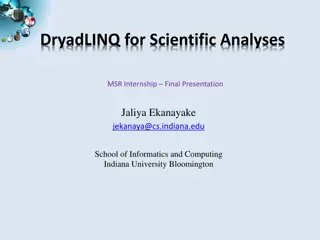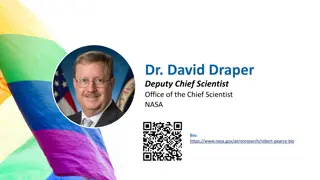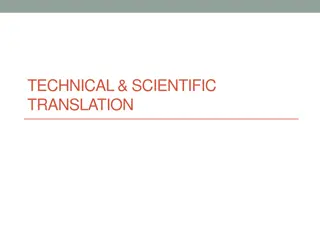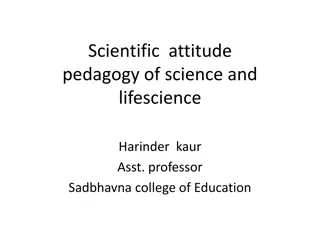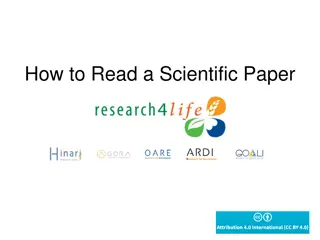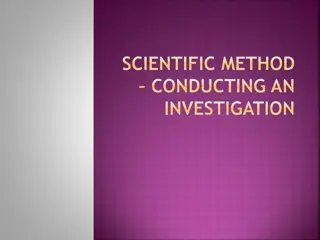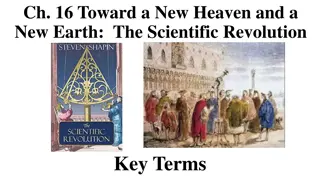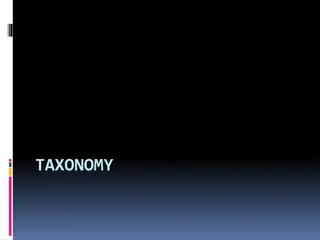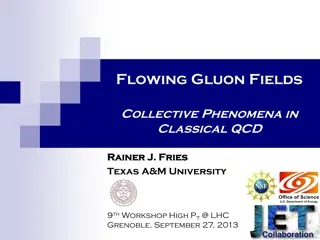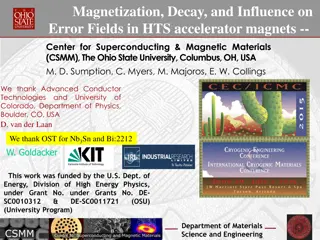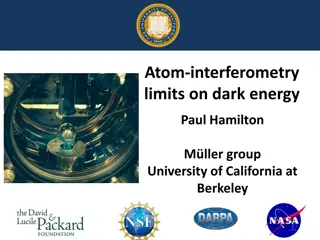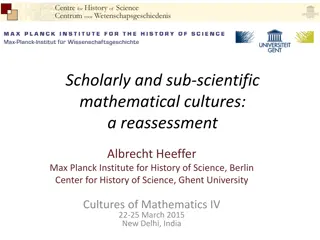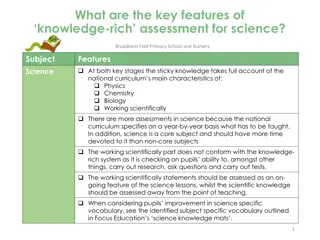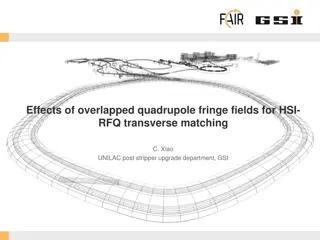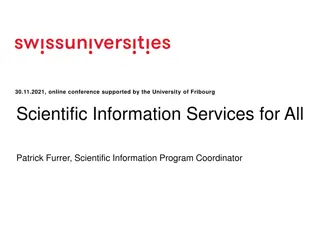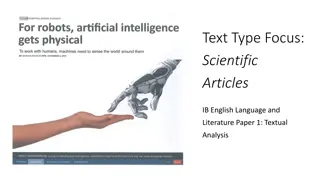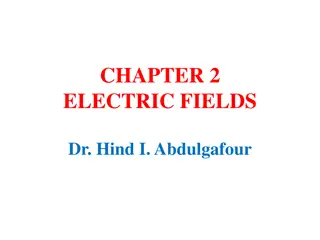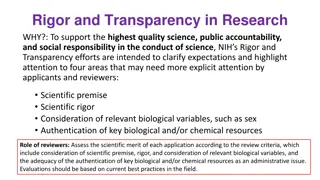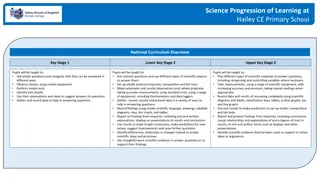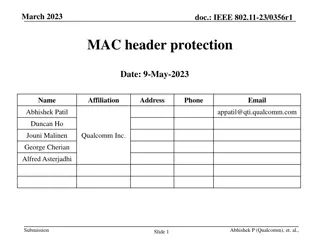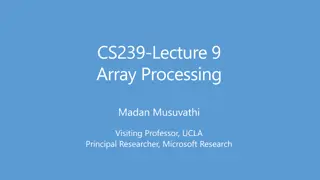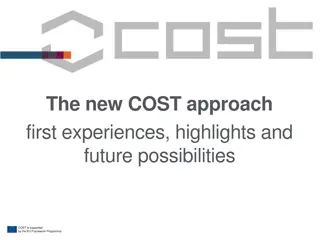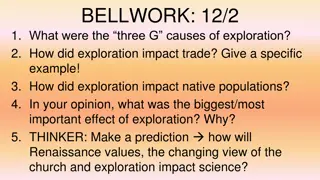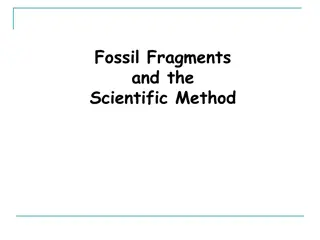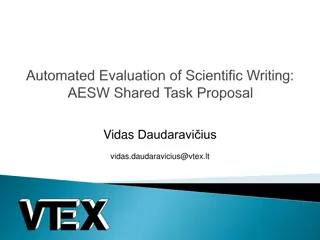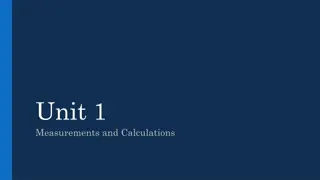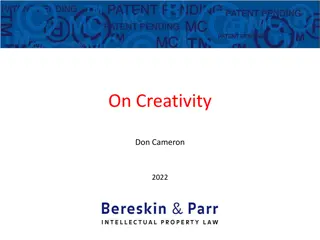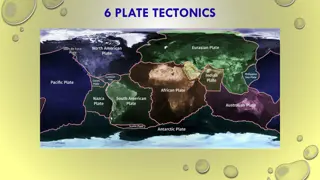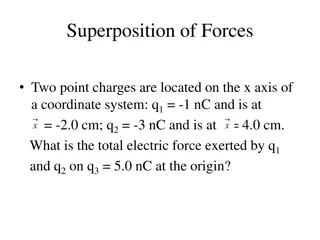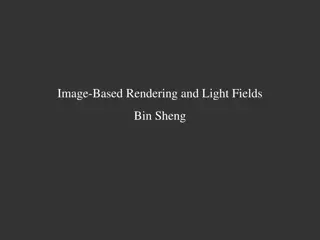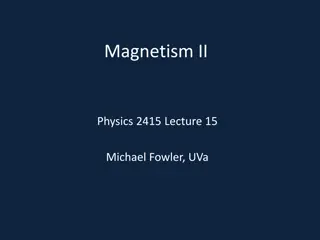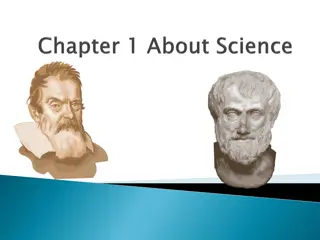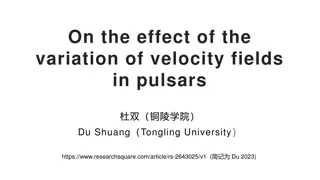Enhancing Scientific Literacy in Early Years Play-Based Learning
This PhD research proposal explores scientific literacy among children in play-based learning, focusing on everyday concepts and their application to scientific understanding. The study aims to implement Vygotsky's sociocultural theory to enhance children's scientific literacy through Vision 1 and V
7 views • 19 slides
Exploring the PROTEOCURE COST Action: Targeting Proteolysis for Proteome Remodeling
The PROTEOCURE COST Action focuses on targeting proteolysis for proteome remodeling, aiming to enhance Europe's scientific and technological capacity through collaboration across various fields and career stages. Participating in this initiative offers financial support, scientific networking, and c
0 views • 17 slides
Understanding Climate Change through Scientific Inquiry
Explore the role of science in addressing climate change, identifying scientific questions, discussing different disciplines involved, and analyzing the strength and limitations of scientific methods. Engage in activities to understand how scientific questions are formulated and categorized for inve
2 views • 22 slides
Evaluation of DryadLINQ for Scientific Analyses
DryadLINQ was evaluated for scientific analyses in the context of developing and comparing various scientific applications with similar MapReduce implementations. The study aimed to assess the usability of DryadLINQ, create scientific applications utilizing it, and analyze their performance against
0 views • 20 slides
Overview of NASA's Office of the Chief Scientist and Deputy Chief Scientist Dr. David Draper
The Office of the Chief Scientist (OCS) at NASA plays a vital role in advising, advocating, and representing the agency in various scientific matters. Dr. David Draper serves as the Deputy Chief Scientist. The OCS leads initiatives related to scientific integrity, research security, citizen science,
2 views • 11 slides
Understanding the Scientific Method in Measurements and Calculations
Explore the scientific method in detail, including observing, collecting data, formulating hypotheses, testing hypotheses, and formulating theories with practical examples. Understand the importance of experimentation and how it leads to the development of scientific theories. Engage in activities t
6 views • 43 slides
Understanding Scientific Translation: A Vital Tool for Advancing Knowledge
Scientific translation is a specialized practice that involves accurately translating complex terms in fields such as science and technology to facilitate global knowledge exchange and advancement. It requires precision, fidelity to source material, and a deep understanding of technical terminology
0 views • 60 slides
Understanding Scientific Attitude and Pedagogy of Science
Scientific attitude involves open-mindedness, curiosity, rationality, and a desire for accurate knowledge. It includes characteristics such as critical thinking, respect for diverse viewpoints, and a reliance on verified information. Developing a scientific attitude involves studying superstitions,
1 views • 6 slides
Guide to Reading Scientific Papers
Understanding how to read a scientific paper is crucial for researchers and students alike. This guide covers the types of scientific papers, organization of a paper, and the key steps to properly read and comprehend complex scientific information. It explains the different sections of a paper, such
0 views • 20 slides
Understanding the Scientific Method: A Comprehensive Guide
Exploring the scientific method and principles of scientific investigation, this guide covers the mindset of a scientist, steps in the scientific method, and key components like formulating questions, conducting research, creating hypotheses, performing experiments, and analyzing results. It emphasi
1 views • 21 slides
Explore the Scientific Revolution
The Scientific Revolution marked a shift from the medieval worldview to a secular, rational, and materialistic perspective. Key terms such as geocentric and heliocentric conceptions, Cartesian dualism, rationalism, and the scientific method played pivotal roles in shaping this transformative period.
7 views • 10 slides
Understanding Taxonomy and Scientific Classification
Explore the world of taxonomy and scientific classification, from the discipline of classifying organisms to assigning scientific names using binomial nomenclature. Learn the importance of italicizing scientific names, distinguish between species, and understand Linnaeus's system of classification.
0 views • 19 slides
Understanding Flowing Gluon Fields and Color Glass Phenomena in QCD
Explore the collective phenomena of gluon fields in classical QCD, focusing on the Standard Model of URHICs, Color Glass, and Gluon Fields in the Forward Lightcone. The research delves into topics like local thermal equilibrium, viscous hydrodynamics, and the interaction of probes with quarks and gl
0 views • 24 slides
Magnetization, Decay, and Error Fields in HTS Accelerator Magnets
The research conducted at The Ohio State University focuses on understanding the magnetization, decay, and influence of error fields in high-temperature superconducting (HTS) accelerator magnets. The study explores the impact of different superconducting materials such as Nb3Sn, YBCO, and Bi:2212 on
0 views • 21 slides
Limits on Dark Energy Using Atom Interferometry - UC Berkeley Study
Research conducted by Paul Hamilton Müller's group at the University of California, Berkeley, focuses on using atom interferometry to explore dark energy. The study delves into screened scalar fields as dark energy, future reach with atom interferometry, known unknowns related to dark energy densit
0 views • 39 slides
Reassessing Scholarly and Sub-Scientific Mathematical Cultures
Scholarly and sub-scientific mathematical cultures are reevaluated through the works of Jens Hoyrup, focusing on the organized nature of sub-scientific knowledge. The distinction between theoretical and practical knowledge, applications to mathematical cultures, and misconceptions related to the sup
0 views • 53 slides
Key Features of Knowledge-Rich Assessment for Science at Broadbent Fold Primary School
Sticky knowledge in science assessment at Broadbent Fold Primary School encompasses Physics, Chemistry, Biology, and Working Scientifically. Assessments are detailed due to the structured national curriculum, with a focus on specific scientific vocabulary and practical applications. The ongoing asse
0 views • 20 slides
Investigation of Overlapped Quadrupole Fringe Fields for HSI-RFQ Transverse Matching
General introduction to the study on quadrupole fringe fields, focusing on investigating the effects of overlapped fringe fields on HSI-RFQ transverse matching by introducing a new QQ focusing system and measuring transmission efficiency with comparisons between simulations and experiments. The stud
0 views • 17 slides
Scientific Services for All - Enhancing Scientific Information and Services
This online conference, supported by the University of Fribourg, focuses on providing scientific information and services for all. Led by Patrick Furrer, the Scientific Information Program Coordinator, the event delves into creating a network of services, developing a coordination structure, and sho
0 views • 12 slides
Quiz Review on Scientific Method and Graphing
Explore a quiz review covering topics related to scientific method, graphing, and experimental design. Understand key concepts such as hypothesis, scientific law, theory, variables, and experimental control through detailed questions and images. Test your knowledge on laboratory safety, inferences,
0 views • 14 slides
Unveiling the Art of Scientific Article Writing
Delve into the world of scientific articles in IB English Language and Literature Paper 1. Understand the purpose, use of language, comparisons, and visuals in scientific writing. Explore how these elements engage readers and simplify complex concepts through examples like stethoscopes and swamp wat
0 views • 9 slides
Understanding Electric Fields: Fundamentals and Concepts
Electric fields are created by surrounding charges and are represented by vectors indicating the force experienced by a test charge. Electric field lines help visualize the direction and strength of the field, with denser lines indicating stronger fields. The electric field due to a point charge can
0 views • 13 slides
Fusion Science Department Enabling Research Projects 2021-2023
The Fusion Science Department Enabling Research Projects for 2021-2023 focus on developing novel fusion-relevant scientific and technological ideas. These projects, led by Principal Investigators, are distinct from main work packages and involve scientific planning, team collaboration, and resource
0 views • 11 slides
Enhancing Research Quality through Rigor and Transparency Initiatives
NIH's Rigor and Transparency efforts aim to uphold the highest standards in research, ensuring scientific premise, rigor, consideration of relevant biological variables, and authentication of key resources. Reviewers play a critical role in assessing these aspects to support robust and accountable s
0 views • 9 slides
Science Progression of Learning at Hailey CE Primary School Overview
This curriculum overview outlines the scientific learning progression for pupils at Hailey CE Primary School across Key Stage 1, Lower Key Stage 2, and Upper Key Stage 2. It details the development of scientific skills and knowledge, from asking simple questions and making observations to planning a
0 views • 11 slides
Vulnerabilities in Unprotected MAC Header Fields in IEEE 802.11 Standard
The document discusses the risks associated with unprotected fields in the MAC header of MPDUs in IEEE 802.11 standards, highlighting how these fields can be vulnerable to attacks leading to adverse effects on receivers. Fields like Frame Control, Sequence Control, and QoS Control are identified as
0 views • 10 slides
SciDB: Revolutionizing Data Management for Scientific Analytics
SciDB is an open-source analytical database designed to meet the complex data management needs of the scientific community. It offers a unique array-based data model that supports advanced linear algebra operations crucial for scientific analytics. By addressing the limitations of traditional relati
0 views • 39 slides
Overview of the New COST Approach and Recent Changes in COST Association
COST (CO-operation in Science and Technology) facilitates networking activities for European researchers to collaborate on various scientific disciplines. The recent changes in COST Association introduced a new set of rules for proposal submission and evaluation, focusing on streamlining procedures
0 views • 24 slides
Impact of Exploration and Scientific Revolution on Society
Exploration in the age of discovery was driven by economic, political, and religious motives, impacting trade and native populations while leading to significant scientific advancements and changes in societal beliefs. The Scientific Revolution challenged traditional views with new scientific method
0 views • 19 slides
Understanding the Scientific Method Through Fossil Fragments
Exploring the scientific method through the study of fossil fragments involves careful observation, sketching, and inference-making to understand past organisms and habitats. The steps of the scientific method, such as asking questions, conducting experiments, and drawing conclusions, are integral t
0 views • 32 slides
Automated Evaluation of Scientific Writing Workshop
This content discusses the automated evaluation of scientific writing in the context of the 10th Workshop on Innovative Use of NLP for Building Educational Applications. Topics include predicting sentence classes, language editing at VTeX, different domains of scientific writing, and data on documen
0 views • 24 slides
Understanding Scientific Notation and SI Measurement Basics
Explore scientific notation as a method for expressing large and small numbers efficiently in mathematical calculations. Practice converting numbers into scientific notation and learn the rules for multiplication, division, addition, and subtraction in this format. Additionally, discover the benefit
0 views • 41 slides
Insights on Scientific Creativity and Imagination in Science
Explore the origins of ideas, the scientific method, and the role of imagination in scientific discovery through the perspectives of renowned figures like Isaac Asimov, Richard Feynman, and Donald M. Cameron. Delve into the interplay between creativity, constraints, and reality in the pursuit of sci
0 views • 31 slides
Exploring Plate Tectonics and the Scientific Method
Dive into the world of plate tectonics and the scientific method in this lesson. The session covers vocabulary and grammar review, giving and receiving feedback, learning new concepts related to plate tectonics, and understanding participles and participial adjectives. Explore the theory of plate te
0 views • 8 slides
Understanding the Scientific Method: Pre-Test and Daily Agenda
Explore the process of science with a pre-test on the scientific method, followed by a detailed daily agenda covering activities like bell-ringers, reviews, and experimental design. Understand the nature of science, scientific reasoning, and the importance of variables, groups, and constants in inve
0 views • 51 slides
Electric Charges and Fields in Physics
Explore topics such as superposition of forces, electric fields, particle interactions, potential differences, and cathode-ray tube concepts in physics involving charges, forces, and fields. Understand scenarios like calculating total electric force between charges, finding electric fields at specif
0 views • 10 slides
Understanding Image-Based Rendering and Light Fields
Exploring the concepts of Image-Based Rendering (IBR) and Light Fields through a historical perspective, pros and cons analysis, basic approaches, and recent developments in the field. IBR offers photorealistic image capture and representation, with advancements like data-driven graphics and appeara
0 views • 43 slides
Understanding Magnetism: Forces, Fields, and Applications
Explore the fascinating realm of magnetism in Physics as you delve into topics such as forces on charged particles, path of particles in magnetic fields, torque on current loops, and Earth's magnetic field alignment. Learn about the force on straight wires and electric charges in magnetic fields, an
0 views • 14 slides
Evolution of Scientific Thought and the Scientific Method
Explore the evolution of scientific theories and methodologies through the works of influential figures like Aristotle, Copernicus, Galileo Galilei, and Francis Bacon. From the geocentric beliefs of Aristotle to the heliocentric model proposed by Copernicus, witness the shift in paradigms and the em
0 views • 14 slides
Impact of Velocity Field Variations on Pulsar Magnetic Fields
The study explores how variations in velocity fields affect pulsar magnetic fields, highlighting the conversion of kinetic energy to magnetic energy in pulsars. Glitches in these systems can lead to changes in magnetic fields, influencing pulsar emissions. The maintenance of stable magnetic fields a
0 views • 14 slides



